Welcome to another issue of The Newport Cornucopia where we dig through the newspapers archives for interesting news articles and adverts. All articles are posted verbatim and most headlines are original (headlines in quotes are my own).

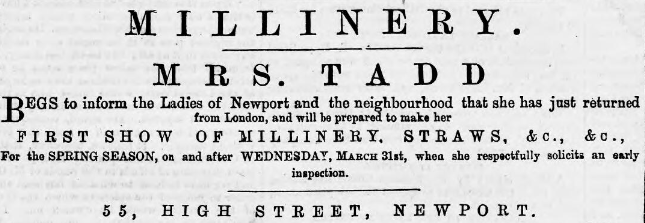
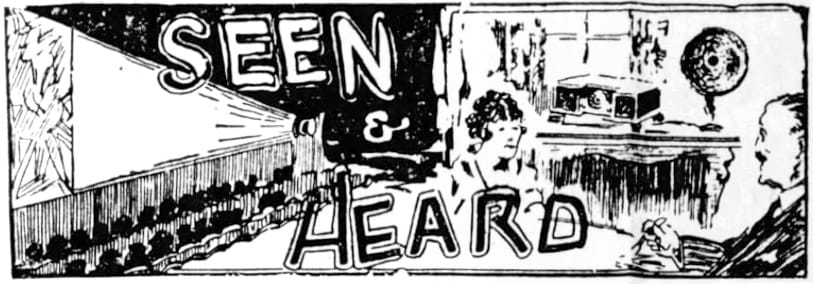
Murenger House Residents Take a Trip to New York
Dr A.E. Tonks and Mr J.W. Pennington, Murenger House, have gone to New York for a trip. They sailed from Liverpool a few days ago, and expect to return home in about a fortnight.
— South Wales Argus, 3rd October, 1908 (Subscription Required)
'How Newport Literature Travels'
No day goes by but the thoughts of some son of Gwent — now far from his native land — goes back to the days of his youth and the old folks at home. This week we received a letter to the Editor signed "W.E. Davies, C.M.C. late of 45, Church-road, Newport," and dated "Gaiman, Terriotori del Chubut, South America."
Mr Davies wrote: How Newport literature travels! One day last February, while camping by myself on the west slopes of the Andes, a piece of paper was blown close to me, and on picking it up I was surprised to find it was a tract printed in English, and at the bottom of the page the words, "From the Tract Depot, Stow-hill, Newport, Mon.?"
How it brought back old memories of the time when a boy I used to go to the shop on the corner, where the Tract Depot is now, to buy toffee, and I began to wonder where some of the boys have gone who used to tease Ned Miles, or poke the donkey of old John, the pan and pitcher seller, or pull the plug our of the old waterman's barrel (forget his name), and also what has become of some of the old footballers such as Bob Gould, Jordan, or Newman, the smart quarter-back. Wishing the South Wales Argus every success, I remain, yours sincerely W.E.D.
— South Wales Argus, 3rd October, 1908 (Subscription Required)

The Cab Stand in the High Street
Alderman Townsend called the attention of the Superintendent to the behaviour of the cabmen on the stand in front of the Post-office. He said the Postmaster had complained to him of the disorder which prevailed at this spot by reason of the men standing about in front of the Post-office, puffing and spitting, and obstructing the pavement.
Superintendent Huxtable said there never were more than four cabs on this stand, unless it was during the absence of the police. They were a curious lot of men to deal with, and he did not think there was any reason for interfering with them. Aldermen Townsend knew them to be impertinent if spoken to. It was no use his saying anything to them.
— Monmouthshire Merlin, 4th August, 1871


Neglecting to Remove a Nuisance
Alexander Watt was charged with permitting an accumulation of filth near a dwelling-house at Allteryn.
Mr. Newman, Deputy Town Clerk, prosecuted on behalf of the Corporation. Inspector Williams said he had received complaints of a nuisance caused by the filth placed at a certain spot in Allteryn by the defendant, who is scavenging contractor for the borough. Gave him seven days notice to clear it, but it was not done until after the summons had been issued. It had been since removed. Defendant admitted the offence, but pleaded that he had made a mistake as to the notice given. Defendant was fined 21s. including costs, and ordered not to repeat the nuisance.
— Monmouthshire Merlin, 9th April, 1880

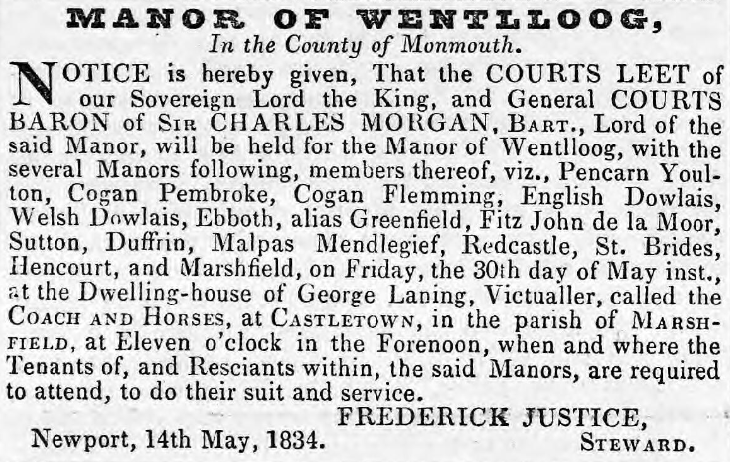

Damaging a Banner
Eugene McCarthy was charged with being drunk and wilfully damaging a banner, value £10, the property of the Independent Mutual Brethren Society, in Skinner-street, on Monday. The man, who during the procession of the club on Monday had charge of the banner, said prisoner came up to him, caught him by the throat, and put his foot through the material of which the banner consisted. Witness requested him to desist, but he refused. The damage amounted to £5.
The Bench inflicted a fine of 1s, and ordered prisoner to pay the £5 in weekly instalments of 5s. At the decision a man made an observation that the Bench did not give the society "fair play," and on being placed in the dock, he was ordered to be locked up for one day.
— Monmouthshire Merlin, 9th April, 1880
Throwing Stones at a Railway Train
Alfred Pritchard and Thomas Crump, boys belonging to Newport, were charged with throwing stones at a railway train, on the Great Western line.
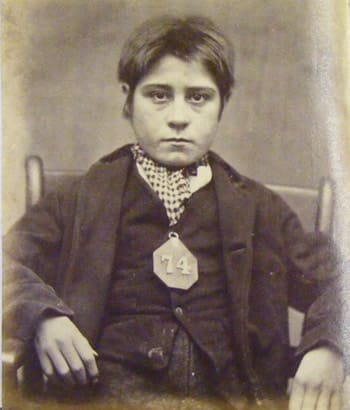
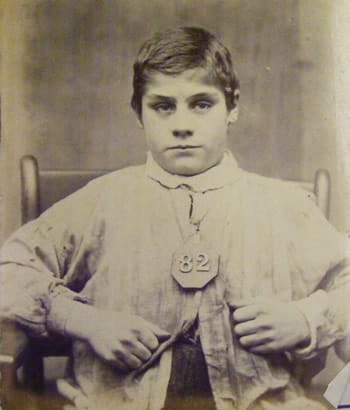
Alfred Pritchard (left) and Thomas Crump. Source: Gwent Archives via Newport Past
John Lewis said he saw the defendants, with three others, standing on Maesglas Bridge. He saw defendants throw stones at a passing train, and heard Pritchard say "I nearly hit the ____."
William Ball, engine-driver, said as he was driving the 1.40 train from Cardiff to Newport, he saw a stone thrown from Maesglas Bridge, and it struck the funnel of the engine. The boys were committed for trial at the Assizes, bail being refused.
— Monmouthshire Merlin, 4th August, 1871
A Deaf and Dumb Tippler
Arthur Davies, a deaf and dumb tailor, was charged with being drunk and riotous on Tuesday last. The case was proved by P.S. McEvoy, and it was further stated that defendant caused his neighbours considerable annoyance by his drunken habits and disorderly conduct, but he had hitherto been pitied in consequence of his infirmities.
Defendant could read and write very well, and the magistrates told his mother, who came forward and expressed her regret at what had occurred, that for the present offence her son would be fined 5s., and if it was repeated a much heavier penalty would be imposed.
— Monmouthshire Merlin, 4th August, 1871
'Stealing Apples in Malpas'
Lehay, Richards, James, Chapman, and Sweeney, boys working at the factory, were charged with stealing a quantity of growing apples, the property of William Jones, at Malpas.
P.C. Rees, one of the Borough force, came upon the boys in Skinner-street eating apples, and as soon as they saw him they ran away. Judging that something was wrong the constable ran after them, and apprehended two of the lads with a quantity of apples in their possession. On being questioned the boys confessed to having stolen the apples from a garden at Malpas.
Prosecutor stated that his apple trees had been damaged to a considerable extent, and a quantity of apples, corresponding with those produced, had been taken. Prisoners all pleaded guilty, and said they were sorry for what they had done. They were told by the Chairman that for such an offence they were liable to six months' imprisonment, but the Bench were willing to accept the promise they had given that it should not occur again, and they would only be fined 1s. and the costs 2s. each, or in default seven days' hard labour.
— Monmouthshire Merlin, 4th August, 1871
"Pitch and Toss" on Sundays
Alfred Richards was charged with playing at pitch and toss in a public thoroughfare on Sunday last. P.S. Winmilll caught a number of boys playing at pitch and toss.
He took prisoner into custody because he was the biggest.
— Monmouthshire Merlin, 4th August, 1871

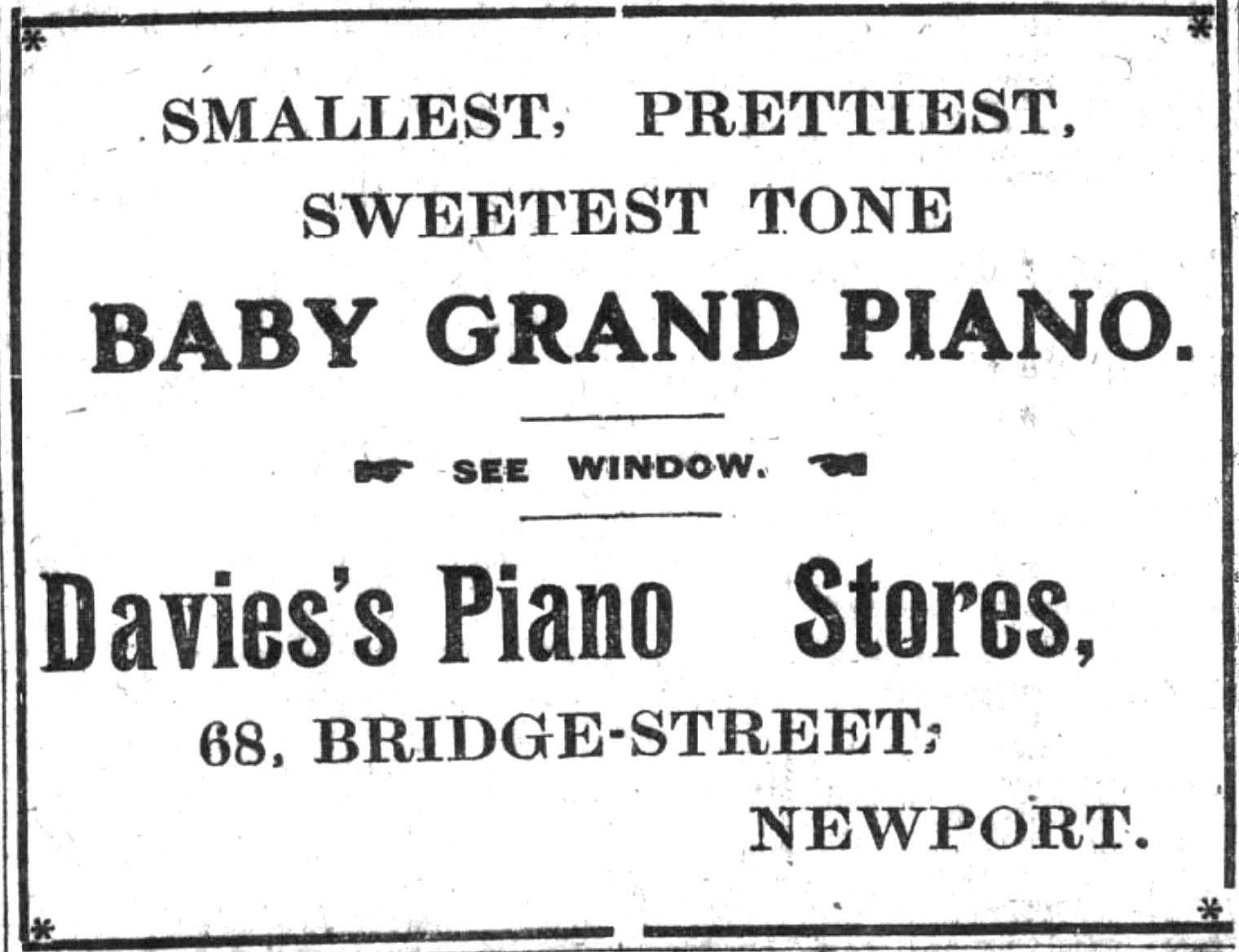

'Fire Caused by Candle'
A fire broke out in the stable of Mr. James Knight, at the bottom of Granville-street, about half-past five o'clock on Monday morning. The police were quickly on the spot with the hose, and under the direction of the Superintendent the fire was subdued before any great damage was done. The fire, it appears, originated from a candle carelessly carried into the loft by a boy in the employ of Mr. Knight. The premises were insured.
— Cardiff Times, 4th December, 1858

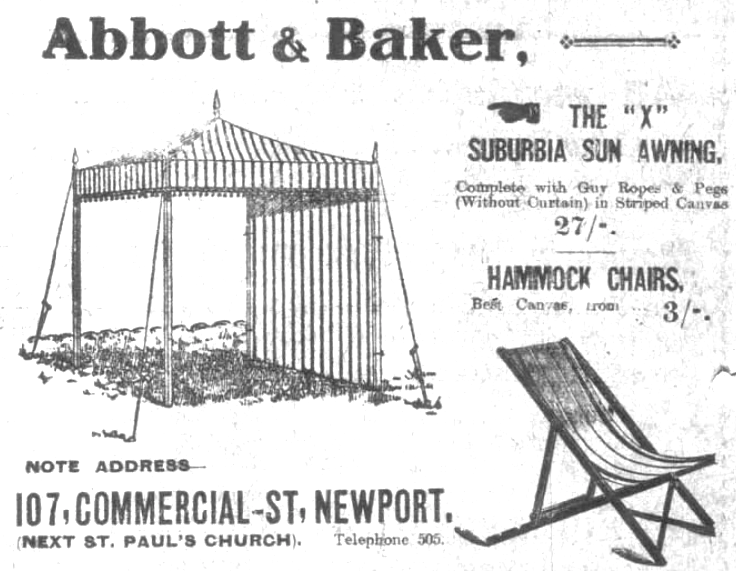

'Gas Lamp Installed Near the George, Maindee'
The chairman observing on the desirability of lighting the streets at Maindee and the road leading thereto from Newport, said he would propose to place a lamp near the George, and others in the most advantageous places for lighting the thoroughfares.
He thought if they could get an annual subscription of £25 towards it, a rate might be levied for the remainder, and the Newport Gas Company might possibly be induced to extend their mains towards them. Mr. Andrews thought if there was an annual subscription of £25, a small rate would suffice to cover the rest of the expense.
After a conversation, the following resolution was agreed to, Resolved that the "Newport Board of Health be informed that this board have it in contemplation to erect some public gas lights within their district, and be respectfully requested to do the same between the bridge turnpike gate and the eastern boundary of their district." The board then rose.
— Cardiff Times, 4th December, 1858


Gentlemanly Amusements
To the Editor of the Monmouthshire Merlin.
SIR, Allow me to make a few remarks in your valuable paper, respecting the excesses committed in public streets by the gentlemen lately come amongst us, desirous of obtaining publicnotoriety in some way or other. I am gratified to ascertain from the following reports, copied from the "blue book," that the police have been doing something — if only with their pens which may lead to matters of more consequence to the offending parties:— " Thursday night, May 14.—At half-past ten, there were five or six of the officers very drunk in High-street, and from there they went to the King's Head. At half-past twelve they came out, and began to make a row in Thomas-street, and near the pump they discovered a pair of trucks, in which some of them got, and the others dragged them about in state, until ordered to be quiet, and be off. They then ran off towards the Marshes-road, where they began again, and broke open door in Jenkins's house, a-looking for some girls.
Sunday night 17th. At eleven o'clock, P.C. Hayward was on duty in Thomas-street, when he heard some one driving a fly at a flying rate, and as to endanger the lives of any person who might be cross the road at the time. In a few minutes he heard them returning at the same furious rate. He then went towards the King's Head to ascertain who they were, when he met Mr. Lloyd and several of his men, and Mr. LI. asked P.C. Hayward to take the fly from them, who thereupon asked the person driving, who was an officer from the barracks, not to drive so fast; still he kept on driving at the same rate, and when at the King's Head the Boots took the reins from the driver, who jumped out the box, and knocked down Mr. Boots. Hayward spoke to the man who did so, on the subject, and told him he was no gentleman to drive through the town in that manner; when he told Hayward if he meddled with him, he would work his stick on his head. Ther ewere five or six of them together, and some of them were drunk at the time.
Monday night, 18th. At one o'clock P.C. Pennimore was on duty on the Marshes-road, when he heard some one calling out, "Go from my door, you robbers!" He went to see what was the matter, when he saw several officers by James Jenkins's door. Jenkins said had just been trying to break into his house. Then the policeman told Jenkins the men were officers from the barracks when they began to curse him, and threatened to knock his old head off, and honour him with a d--d good hiding. Pennimore did not offer to take any of them, being six in number. They then went away. I could add much very to this, in the way of relating how many dog-carts they have broken in a week while driving tandem through the public and bye-streets of Newport to excel travelling exhibitors, and terrify the inhabitants — how near they drive to the edge of the dock, to see which drives the nearest without "a spill" in the water, and a thousand other pranks, to the annoyance of the inhabitants. I have known poor fellows punished for growling at the police, when ordered to "clear the bridge," or the road; and men convicted of driving or riding beyond a steady pace; and for knocking at doors and creating disturbances in the streets—especially on the ___ bath — I have known persons imprisoned and fined; and where, then, is the secret why these richer offenders a8 the law can escape with impunity?
— Monmouthshire Merlin, 23rd May, 1846

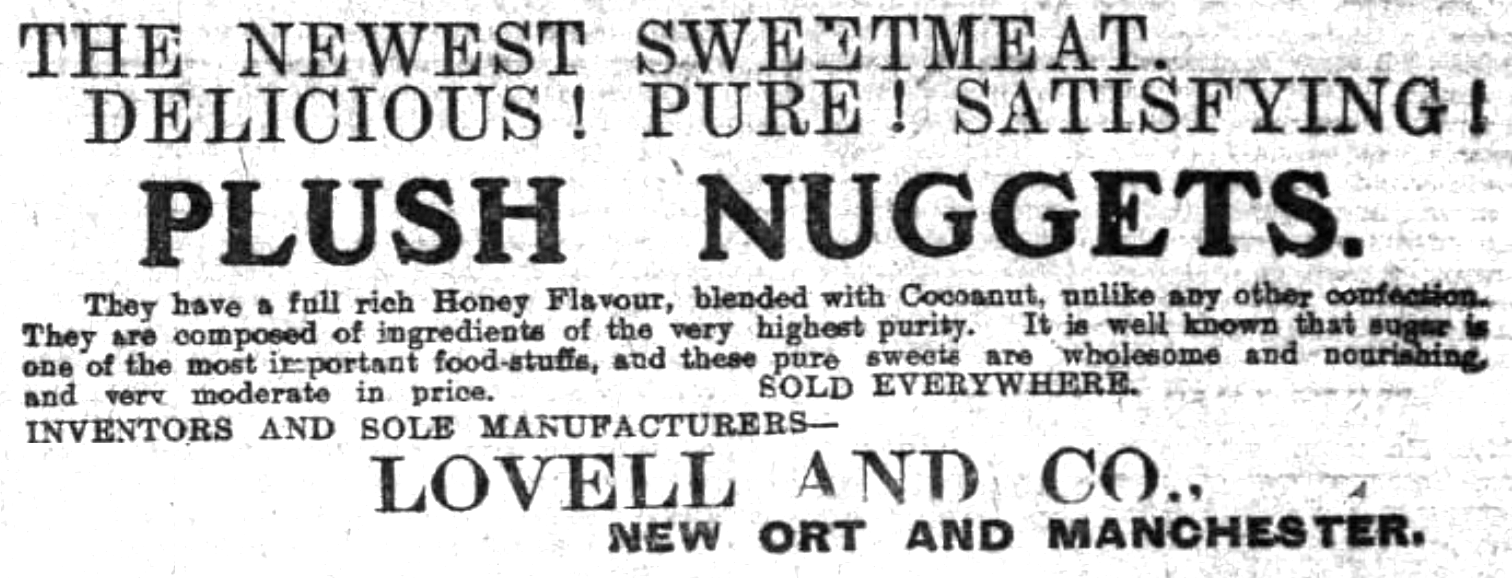

At the Empire: The Eight Lancashire Lads
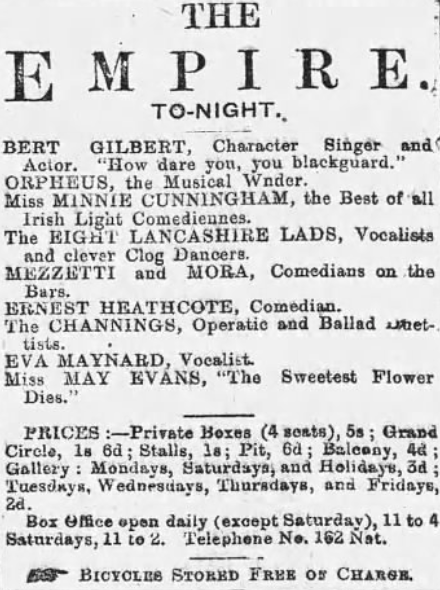
At The Empire in July 1901 were a troupe of make clog dancers called The Eight Lancashire Lads. They toured the music halls of Great Britain and Ireland in the late 19th and early 20th centuries and included Charlie Chaplin who had his first break with them aged eleven.
Not sure if Charlie Chaplin was part of The Eight Lancashire Lads when they visited Newport but a booked called Chaplin: Stage by Stage by A.J. Marriot lists all performances by him with the troupe.
According to this site, he was with the troupe between 1899 and 1900 so unlikely to have been in Newport on at this event


Newport Borough Licensing Sessions: 1876
Some snippets from the Newport Borough Licensing Sessions from the Western Mail.
Lewis Llewellin, Jeddo-street, who has a beer licence for consumption off the premises, applied for a licence to sell beer to be drunk on the premises.
Refused, as the house was not considered good enough.
Gerald Evans, West of England beerhouse, Mill-parade, applied for a double-licence, and was supported by Mr Wade. The application was opposed by Mr Vaughan, for Mr D.P. Rowe, the occupier of the Waterloo Tavern . It was intended by the applicant to add an adjoining house, so as to make it more adapted for the wants of a double-licensed house. On the part of the opponent it was said
there was no need for another double-licensed house, as the Waterloo is only 64 yards and the Ship Inn 300 yards from the West of England.
Alfred Blake, owner of the Castle Brewery, applied for a double licence to the new premises he is erecting opposite his brewery, and for which he at present holds a beer licence. Mr Graham supported the application. Mr Justice opposed on behalf of the owners or occupiers of the King's Head Hotel, Steam Packet Inn, Bridge Inn, Old green Inn and Eastern Valleys Inn. Mr Vaughan opposed for the occupier of the Isca Inn. Mr Graham said the new house was intended to supply a great need to that part of the town.
There would be a luncheon bar, and the structure would be quite an ornament to the town.
If this application was granted, Mr Blake was quite prepared, as the owner of the Shipwreck Tavern, Griffin-street, to withdraw application for a renewal of the licence to that house. The opponents urged that there were a sufficient number of double-licensed houses already in that neighbourhood; and they said there was no alteration in the circumstances of the case since last year, where the magistrates refused a similar application. Adjourned.
Victor Mahire, White Hart Inn, Tredegar-street, was opposed by the superintendent of police on the grounds that he had been in the habit of allowing young boys and girls to assemble in his house. This was an extraordinary case. Mr David appeared for the publican.
Sergeant Winmill was called as a witness. He said on the 22nd January last he visited the White Hart, about 9:30pm.
In a large room upstairs he found 43 boys and seven girls, a man playing a harp, and a boy dancing. The boys were from 13 to 18 years of age, and the children of working men. The girls were about the same age.
Since that time two of the girls he knew had become bad characters. The landlord came into the room whilst he was there, and said, "What is the matter?" Witness replied: "There is a good deal the matter, seeing a lot of these children here." The landlord replied, "I don't call them children". Witness then told him that seven out of every 10 ought not to be in a public house. On the 24th of the same month he visited the house, and saw the same class of boys and girls there, and again spoke to the landlord, but he treated them the matter with indifference. Parents had asked him to get their children away from that house.
Cross-examined: Didn't observe the boys or girls worse for drink. More than half the 50 present were under 17 years of age. Believed that all the girls were under 17.
Sergeant Wilcox was with the previous witness, and corroborated him. He also said that two of the girls there in January had been sent to gaol since.
Inspector Curtis visited the house on the 29th April, with the superintendent, at 10pm, and in the large room he saw 23 boys, three girls, a man playing a harp, and a boy dancing. There were nine pint cups on the table, and some had beer in them. The boys and girls were from 13 to 16 years of age. Spoke to the landlord, who said he did not consider it any harm.
Mr David addressed the bench on behalf of his client, and said it was open to question how far the conduct now complained of could affect the renewal of the licence. He submitted that this sad state of things was no offence against the licensing law. He also submitted that if even if the bench should take the extreme view, it was a question on whom the penalty should fall — certainly not the owner. He presented a memorial to show that the house was a most convenient one for persons attending the cattle market. It was signed by 104 respectable persons.
Mr Beynon: I don't think the parents of these children would sign that memorial.
Mr David hoped the bench would give an opportunity to transfer the licence to someone else.
The Clerk: It is clearly a question for the magistrates to consider whether the licence is to be renewed.
The Chairman said the bench felt very strongly with regard to this case, and they had a very strong disinclination to renew the licence to this man. It would be adjourned to the 22nd inst. The owner had better be present on that occasion.
— Western Mail, 9th September, 1876 (Subscription Required)

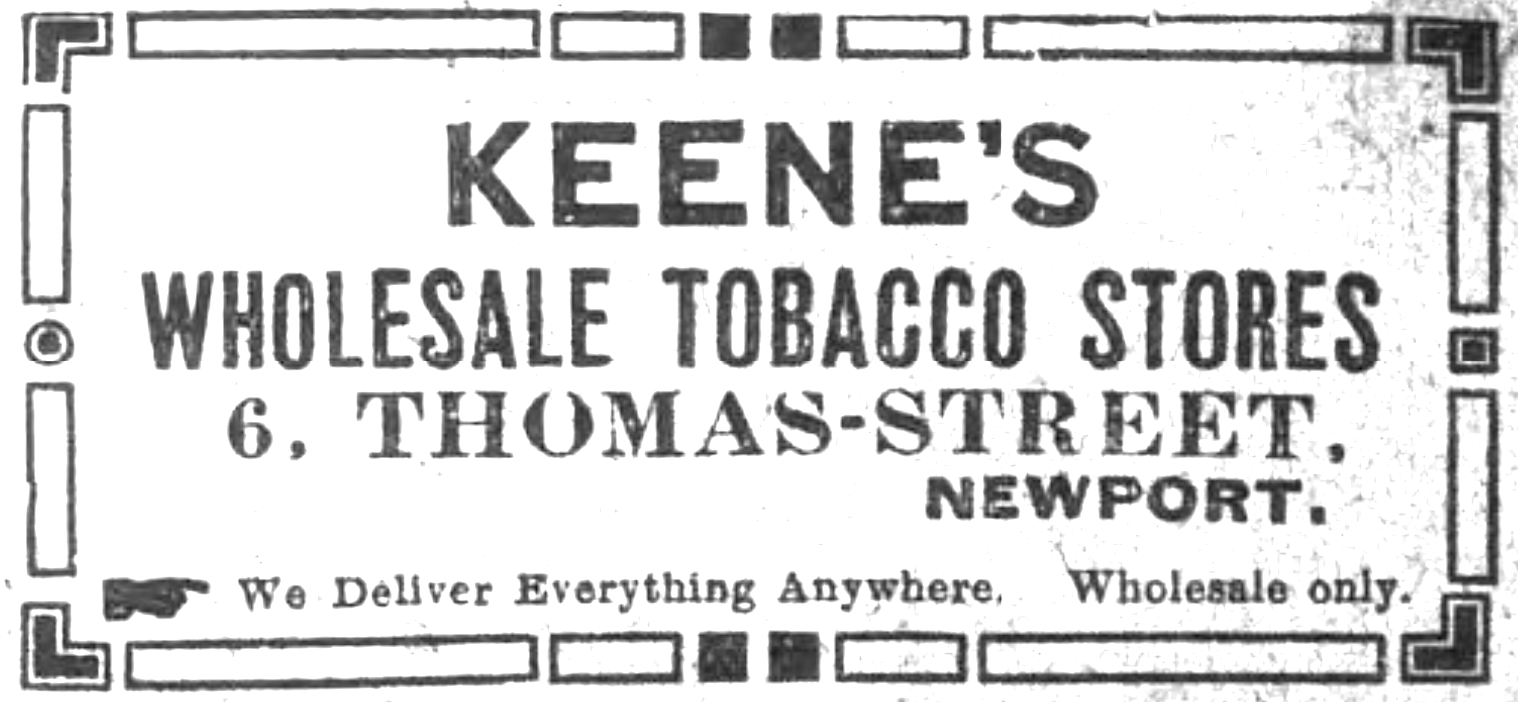

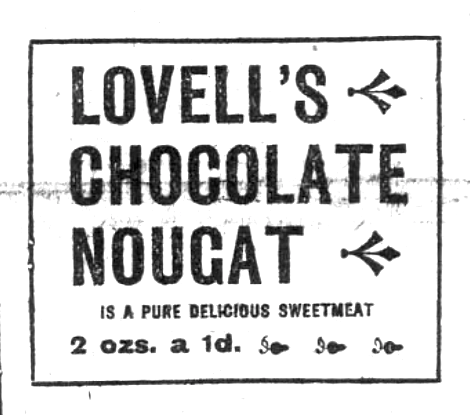
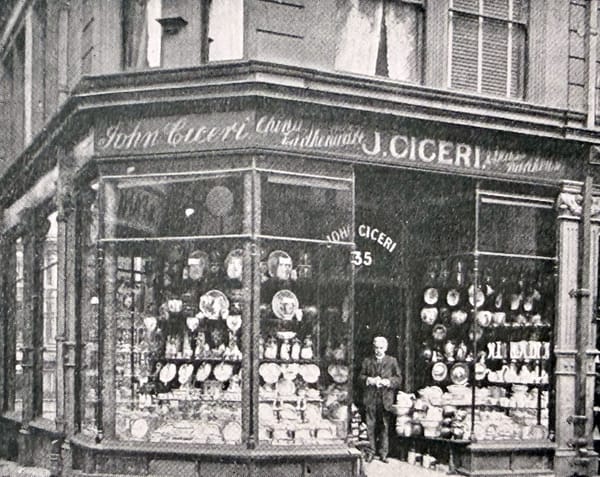
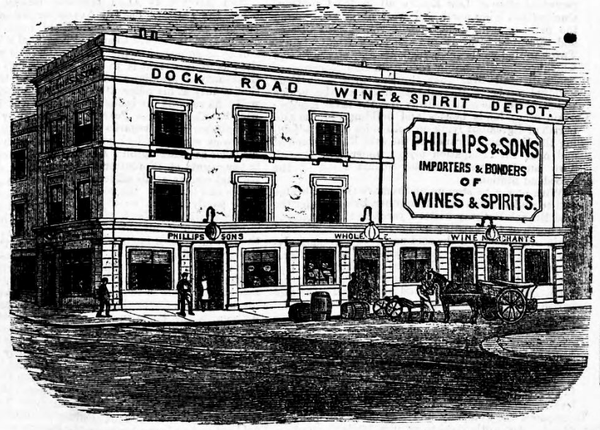
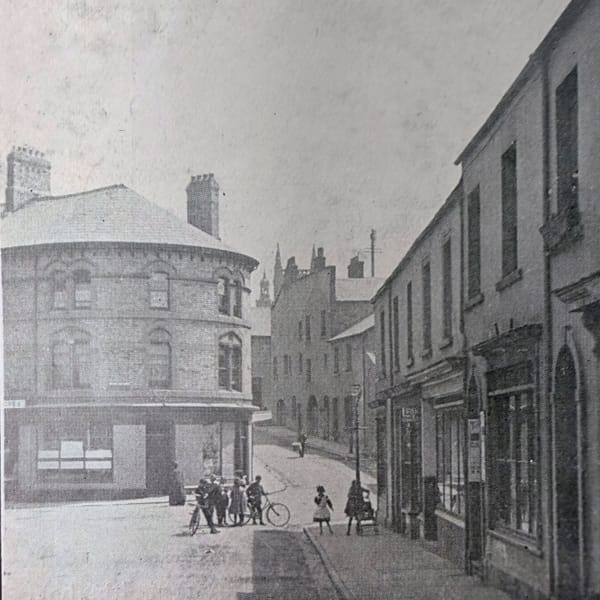
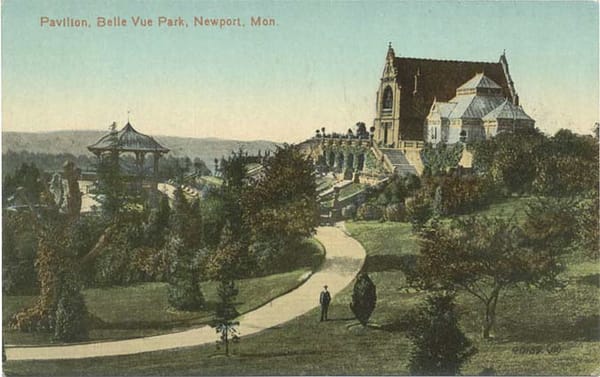
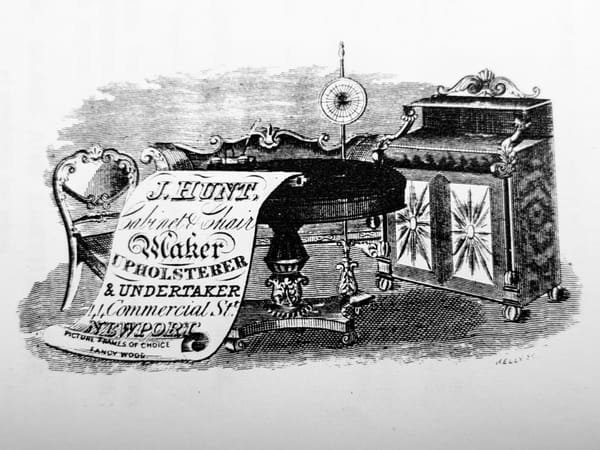
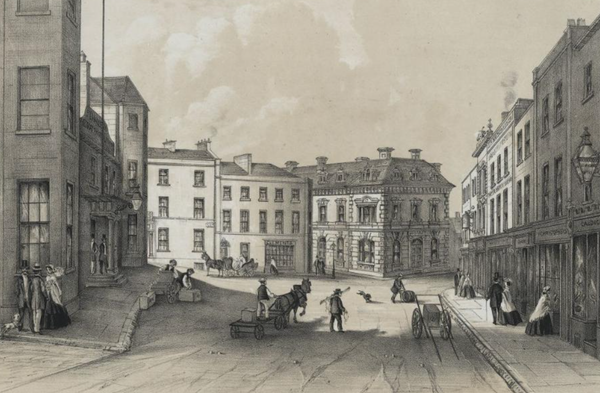
Member discussion